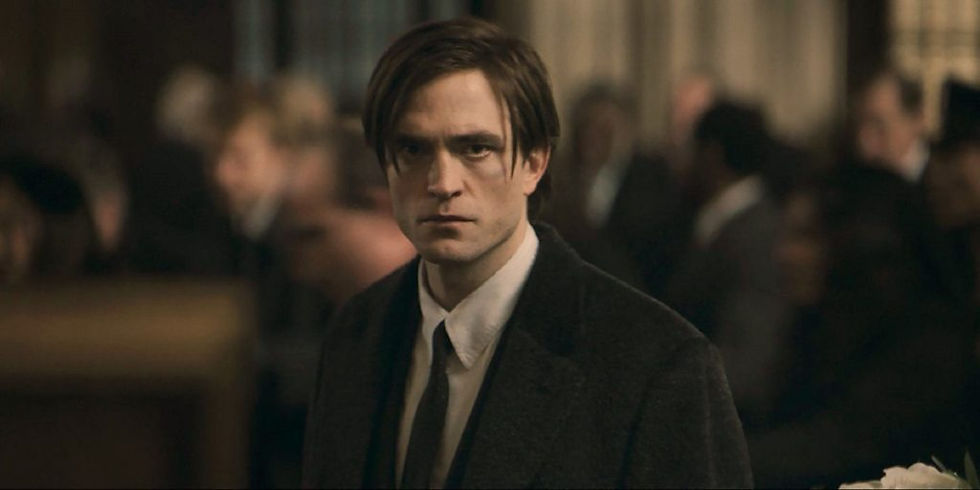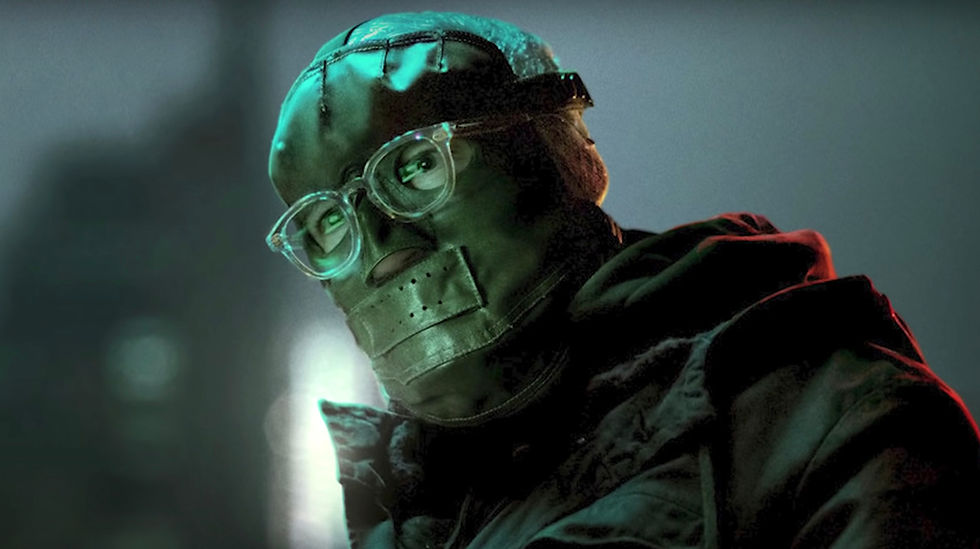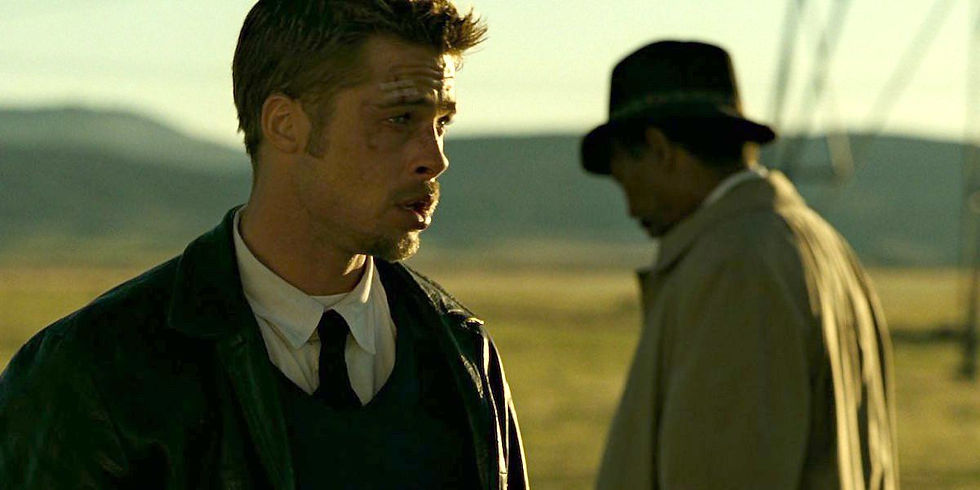The Batman (2022): Review
- Arm Jeungsmarn
- May 6, 2022
- 4 min read
Updated: Feb 28, 2023
According to the YouTube movie reviewer Jeremy Jahns, filmgoers’ opinions towards The Batman can be broadly divided into liking it or loving it. In this dichotomy, I fall firmly in the former category.
Matt Reeves’ take on the cape crusader certainly oozes passion. Watching it, you get the sense that Reeves had always wanted to make a Batman movie. It has the same feeling of artistic giddiness I felt in The Last Jedi or the first Avengers film. The vision is strong, and it’s very different.
This kind of strong vision often leads to extreme emotions. In the case of The Last Jedi, those emotions were extreme and highly polarized. But that was because Rian Johnson actively sought to deconstruct/ destroy the legacy of the old series. It’s the whole point of the film – “the past is dead."

(Image credit: cine)
Not so for The Batman, this film may be different but it pays a lot of homage to the comics and the popular lore of Batman. Like The Dark Knight, it takes a lot of inspiration from The Long Halloween comics. But while Nolan focused on the image of the Gordon-Harvey-Batman trifecta, Reeves focused on the idea of a serial killer and Gotham’s mob underworld.
In this film, the link between the serial killer – The Riddler – and Gotham’s underworld is political. The Riddler is out to expose the ugly truths in Gotham city. He is a serial killer for the millennial age, inspiring followers on the internet to rebel against the system. He feeds on the anomic reality of Gotham city to make himself “someone."
This makes for an interesting dynamic between Batman and the villain for sure. Both of them are out to fix the city. Only the Riddler was able to see the big picture.
I would wager that this is where The Batman gets most of its love. This movie is unapologetic in showing how ugly Gotham is, both aesthetically and ethically. The city is shrouded in darkness; there are rats everywhere; there is literally no scene that is brightly lit. It ends up working because the visual darkness matches the story’s darkness.
Everyone in this film is purposely unlikeable including the heroes. And we don’t even need to talk about the villains. All of them are disgusting and messed up in their own ways. The worst are the politicians. All the politicians in this Gotham are corrupt drug addicts (actually except for one, but she’s kind of inconsequential to the story in my opinion).
And yes, we see corrupt leaders in The Dark Knight too, but not like this. Many of these characters make your skin crawl more than the Riddler did.

(Image credit: Slash Film)
Here lies the central dilemma of the film, however. You root for The Riddler. You sort of agree that sometimes you need to take extreme measures. And it seems Batman isn’t far off from that either. That alone is the kind of complexity that makes your villain interesting and your hero’s journey more challenging.
But the difficult part of this kind of complexity in your film is how to bring it to an end. I don’t want to say resolution, because this kind of dilemma does not always need a resolution. It just needs to go out on an appropriate note.
If you look at Seven, the film from which this movie clearly draws inspiration. It leaves the conflict unresolved but ends the film on a somber note that confirms our belief in the fact that the world is fucked up.

(Image credit: Cinema Blend)
In The Batman, the constraint of telling a hero’s journey ultimately makes the end-point of the Batman-Riddler conflict rather underwhelming for me. I felt like this movie is halfway between the Batman V Superman and Joker. It seems like such an esoteric interpretation that it should be a stand-alone feature that can deliver the darkest message to its audience, without the constraint of future sequels – like Joker. But it still needs to build a universe, so it needed an ending that does not really fit the uber-dark theme it was building on.
This is really the core that prevents me from loving the film. The message at the end was not too clear or at least felt inconsistent.
In other senses too, the need to be a superhero movie prevents this film from reaching great heights. The ending set-piece, which needed to be epic and large-scale does not quite work for me.
However, in terms of Batman as a character, I felt like they could have been more faithful to the comic books with him. They could have had more fun with him. And while Pattinson managed to bring the intensity in various scenes. I can’t help but feel that it was a one-note performance. It felt like watching Christoph Waltz as Blofeld in James Bond. Here is a great actor, given a role that is perfect for him, but not given enough range with which to play around.
The most fun I had in the movie came from the side characters. Jeffrey Wright is an excellent Gordon, and with some more growth, he may even surpass Gary Oldman. Not yet, but the potential is there. Zoe Kravitz is pretty good as Selina Kyle, although I don’t think her revenge arc benefits her character too much. Colin Farrow is amazing as Penguin. And by God, John Turturro is too perfect as a more violent, more despicable version of Carmine Falcone.
So yeah, ultimately, I had fun in various parts of the film. The world it creates is so unique I want to protect it from any franchise meddling. It’s a real shame that all these factors prevent it from being “great."
As for a sequel, I want the film to break free from its current constraint. Warner Brothers should recognize that this darker world of Gotham city is the film’s best asset. So, my suggestion – is just make a Batman version of Sin City, continue to explore how fucked-up Gotham is, and run with this vision as far and as deep as possible.








Comments